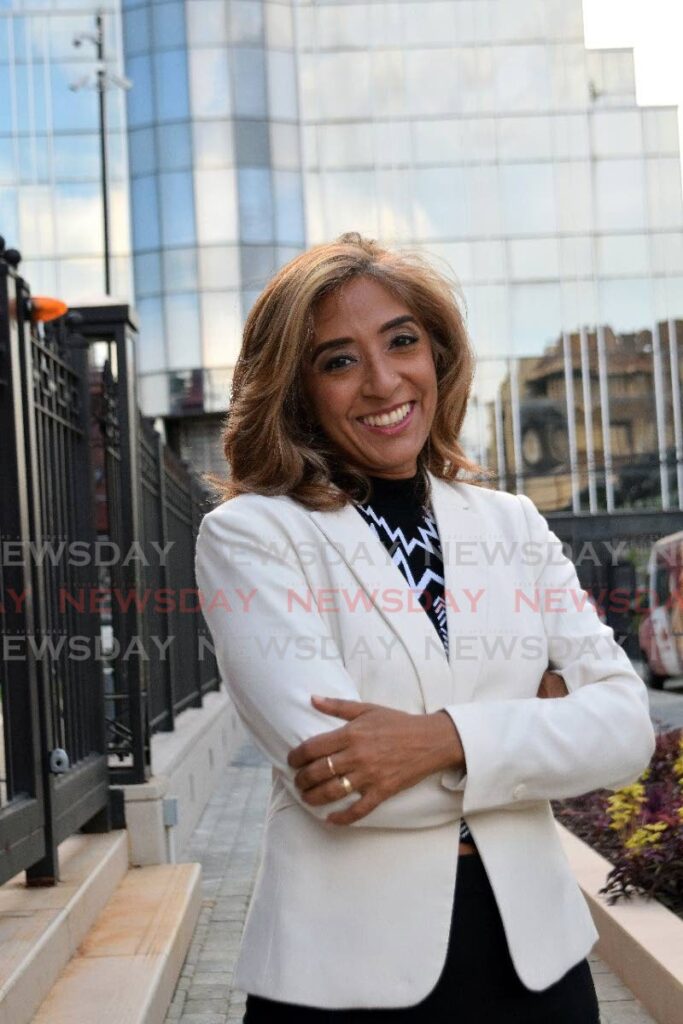The right to choose

DR GABRIELLE JAMELA HOSEIN
IN SOLIDARITY with those who can become pregnant, our eyes are on the impending US Supreme Court decision regarding Roe v Wade.
A draft leaked in the press just over a week ago created a sense of terror among women and reproductive justice activists across states in which abortion isn’t protected by state law. A change to the federal law will result in higher numbers of unsafe abortions and unwanted children, and fundamentally deny women’s right to decide what happens to their bodies.
In 1973, Roe v Wade led to a Supreme Court ruling that abortion access was part of a right to privacy protected by the US Constitution. This protection extended until foetal viability or the point at which a foetus could live outside of a woman’s body, usually from about 24 weeks after conception.
As long as a foetus is inseparable from the person within whom and from whom it is growing, it should be governed by that individual’s right to choose what happens to and within that body, and to make those decisions privately.
There have been decades of mobilising to limit and reverse this landmark judgment including court cases seeking to limit use of public health resources for safe terminations, legislation enabling private citizens to sue doctors who perform abortions or anyone else who “aids and abets” one, and proposals to make travelling to another state to access a safe termination illegal.
This is one the reasons that Donald Trump pushed through right-wing Supreme Court appointees Neil Gorsuch, Brett Kavanaugh and Amy Coney Barrett, who was upfront about being anti-choice.
The awaited US Supreme Court decision is a response to a legal challenge, by the Jackson Women’s Health Organisation and the Center for Reproductive Rights, to Mississippi’s 2018 Gestational Age Act which banned any abortion after 15 weeks with exceptions for medical emergency and severe foetal abnormality, but no exception in cases of rape or incest. In other words, rape victims would be forced to bear a child forced upon them, a life-long violation that can only and has only ever been experienced by females.
Beyond rape and incest, however, women make the significant decision to terminate a pregnancy for many reasons, whether economic, such as an inability to afford (more) children, or emotional, such as an inability to cope with a child. Some women thought they couldn’t get pregnant, but did. Some had contraception fail.
What’s undeniable is that abortion bans do not stop abortion, they just prevent terminations from being safely, legally and immediately accessed. They most affect pregnant people who cannot afford private healthcare, and those who are in states that oppose women’s rights.
In the US, this means non-white, migrant, rural, young, indigenous and low-income girls and women will face greater risks in conditions where healthcare, child care, housing and food are already barely affordable for many working-class families. The irony is that wealth, power and privilege of Republican big business has fuelled millions into this campaign.
World leaders from Spain, Scotland, London and France condemned such an anti-choice position. Canadian PM Justin Trudeau said, “the right to choose is a woman’s right and a woman’s right alone.” In other examples, New Zealand, Thailand and Ireland have all made it easier to secure a safe and legal termination.
More importantly, across Latin America, Argentina, Mexico and Colombia have recently decriminalised abortion. The slogan of what is called “
la marea verde” (the green wave) is “sexual education to decide, contraceptives to not abort, legal abortion to not die.” As the Guttmacher Institute’s 2014 data highlight, about 30 per cent of all pregnancies ended in abortion and about ten per cent of maternal deaths in Latin America and the Caribbean resulted from unsafe terminations.
Belize, Barbados and Guyana enable terminations on request, but there are barriers and bias in practice. In Trinidad and Tobago, abortion is legal under restricted circumstances. Yet, thousands have sought terminations outside of the law, and it should be decriminalised.
Perhaps, the paternalist call to “protect our women” and the anti-vaxxer appropriation of “my body, my choice” should extend to recognising this public health demand and right.
In these highly complicated, contradictory and illogical times, we want to be ahead of – not led by – the US; a country that has neither ratified the Convention on the Elimination of All Forms of Discrimination Against Women nor the Convention on the Rights of the Child.
Meanwhile, we prepare to witness an attack on established precedent based on what the Supreme Court decides.
Diary of a mothering worker
Entry 462
motheringworker@gmail.com


Comments
"The right to choose"